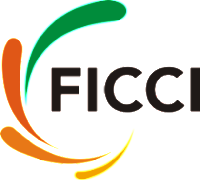
Panelists at a ‘Knowledge Series’ forum of the Federation of Indian Chambers of Commerce and Industry (FICCI) believe the digital content economy would see exponential growth over the next three to four years.
The seminar, held in association with the Los Angeles India Film Council, assessed the extent to which screen content acts as a driver of the digital economy in India. Executives from the creative industry assessed the current regulatory and infrastructural challenges, growth trends and how to monetise such content.
Ramesh Sippy (pictured), film producer and co-chair of FICCI’s entertainment division, spoke of how increased connectivity, technological innovation and new content delivery platforms all combine to spur growth. The government’s role, he said, was pivotal in enabling legitimate content delivery platforms to protect and monetise their content, in a rapidly changing marketplace.
India is the second largest internet user market in the world, with an accelerating 40 per cent internet growth rate. It is felt the Indian media and entertainment sector is at a ‘tipping point’, for online businesses to provide a multitude of options to consumers. However, online content theft, varying levels of broadband access and affordability in terms of data rates are challenges for providers. These will impact how digital media evolves.
Girish Menon, director, transaction services, at KPMG India, said: “The advent of OTT services (delivery of audio, video and other media in broadcasting over the internet, without the involvement of a multiple-system operator in the control or distribution of the content) and onthe-go content, aided with competitive tariffs (rates) and the falling average retail price of smartphones, has helped drive video consumption. However, profitability continues to be a major challenge, coupled with infrastructure and affordability of data tariffs and payments models. It is imperative for OTT players to address these concerns through innovative means, to achieve the medium’s full potential.”
Among the challenges discussed were telecom infrastructure, data charges and, of course, content theft. Film maker Vishesh Bhatt said while monetising of content and innovating with advertising are options, platform owners need to get more courageous with content creation. “We see a lot of examples from the West and try to adapt. Unfortunately, we lack the risk appetite that the West has. Today, if I have an idea but it’s risky, I might not get buyers for it. So, we might not be able to make the pathbreaking content those in the West are making,” he felt.
The panellists agreed the Indian system poses a dichotomy in that it offers scalability through the sheer mass that can be catered to but also has a demand for original content which automatically restricts the audience that can be targeted.
Ajay Chacko, co-founder of Arrey, the UDigital media venture’s brand, added: “Technology is a cost we are well aware about and can plan. To make the business viable, the focus will have to be on innovative marketing and monetising the content. There are ways to use content to market the platform and to create content for advertisers. Different strategies will work for different players.”







Leave a Reply
You must be logged in to post a comment.